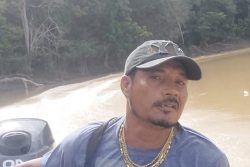Dear Editor,
The 17th century Ethiopian philosopher Zera Yacob (1599-1692), developed a reason-based philosophy in his main work, Hatäta (meaning ‘The Enquiry’) written in 1667. In Hatäta, Yacob criticized his contemporaries for not thinking independently, but rather accepting the claims of astrologers and soothsayers just because their predecessors did so. As a contrast, he recommended an enquiry based on scientific rationality and reason – since in his view, ‘every human is born with intelligence and is of equal worth.’ As we study deeper the life-work of Cheddi Jagan we become aware of new perspectives we had overlooked and because of ‘enquiry based on rationality and reason’ there was an absence of any new perspectives or fresh appraisal of Jagan’s life-work.
While many from the generation of the late 1980’s and early 1990’s may not be too familiar with Jagan’s life-work, it is important to remind that his philosophy and ideology echoed the cry – ‘Liberty! Equality! Fraternity!’ heard to this day around the world. It was certainly pleasing to hear the name ‘Cheddi Jagan’ mentioned in the remarks delivered by Prime Minister Ralph Gonsalves of St. Vincent and the Grenadines at the opening ceremony of CELAC when he placed “Cheddi Jagan in the heroic pantheon amongst other titans, not of mythology, but who have lived struggles for our peoples’ humanization…” With the dominance of neo-liberal and neo-conservative ideologies in the world today, some may have been dumbfounded by PM Gonzales’ remarks using language in this day and age, when he declared; “imperialism and hegemony are the natural enemies of peace” and that “peace is anti-imperialist and anti-hegemonic.” I’m not sure if President Cheddi Jagan was there if he would have followed Ralph by using such language in making a case.
In exploring deeper Jagan’s life work, we are reminded about the influences that led him to draw on certain experiences he had accumulated during the seven years he spent in the United States; ‘Two militant organizations then largely influenced us. From the Progressive Party, formed by Henry Wallace and Paul Robeson to fight the new US Cold War policies, came the name People’s Progressive Party. And from Jamaica’s People’s National Party (PNP) we adapted our party’s constitution, structure and organization.’ Clearly, Jagan showed no interest in naming the party the BG Communist Party nor adapting the party’s constitution to what obtained in that of the Communist Party of the USA. It is therefore plausible to conclude, that Jagan avoided dogmatism and pursued his beliefs based on Guyanese and West Indian realities.
Jagan was an ideologically curious man, always seeking new ideas, ways to expand and grow politically at home and to adapt to global changes based on new evidence and realpolitik. He saw the world as it is rather than as he wished it to be. In retrospect, it seems odd that this was not recognized by his critics in those early years and up to this day. Those on the left like Jagan were conveniently labelled ‘Marxist’ by time-servers and careerists because it helped foster a generalized hostility towards him and enabled anti-Marxist, anti-communist vitriol to take root in colonial British Guiana.
Infection by ideology of the anti-colonial, nationalist struggle led by Jagan was probably unavoidable. It derived ultimately from the growth and strength of the USSR as a great power that promoted a home-grown ideological orientation abroad. Moscow was certainly not his Mecca, Georgetown was. Whenever he travelled there, it was to meet with leaders to share experiences. His fight against American Cold War policies played no small role in defining him in the fixated way those who opposed him wanted to.
While Anglo-American imperialism plotted to get rid of Jagan, they could not agree how to do it. The problem lay in assessing Jagan’s ideological leaning. For example, in February 1959, the Georgetown-based American Consulate, in a despatch to its principals in Washington, identified several factors constraining Jagan and the PPP from pursuing a communist agenda; ‘the PPP was not a communist party; the party’s electoral base was not ideologically defined; pursuing communist policies would alienate financial donors; the PPP was not at the forefront of an international Moscow-directed communist conspiracy and there was no evidence that the PPP received any direct or indirect financial support from Moscow.’ Jagan knew that and worked to gain the confidence of London and Washington. The British on the other hand, through its Georgetown-based Governor reported that; ‘Jagan’s failure to abandon his Marxist philosophy was not necessarily an obstacle to further constitutional progress. He had followed a moderate course and had shown himself capable of working with British officials. ‘The PPP,’ he reported ‘was likely to win any election under a liberalized constitution.’ In the end, London joined with Washington to remove Jagan.
When all is said and done, from a historical to a present-day perspective, Cheddi Jagan would probably have stood by the beliefs of Thomas Hobbes in pursuit of the ‘First Principles’ most notably the recognition of man’s unalienable rights, the Social Compact, and limited government. Moreover, he would have probably been influenced by the beliefs of John Loncke who refuted the theory of the ‘divine right of rulers’ and argued that ‘all persons are endowed with natural rights to life, liberty, and property and that rulers who fail to protect those rights may be removed by the people, by force if necessary.’ Given his search for new ideas applicable to Guyana, Dr. Jagan would have probably gravitated to the ideals of ‘liberalism socialism’ advanced by Thomas Paine, John Stuart Mill, Jean-Jacques Rousseau, Frederich Hegel and Karl Marx, the more prominent and radical liberals of their time.
Liberal socialism offers the prospect of combining respect for liberal rights, checks and balances on state power, and participatory democracy with concerns for the equal flourishing of all in a sustainable environment; the extension of democratic concerns into the workplace and pushing back on authoritarian rule. Perhaps he would have aligned the PPP with progressive, democratic and socialist oriented movements around the world who want radical economic change aligned with liberal values. Whether liberal socialism can become a popular political ideology and concrete reality in Guyana is a hard question. But, revisiting Cheddi Jagan’s commitment to national democracy at home and for a new global human order in a world defined by growing anger and inequality he would have given it his best shot.
Sincerely,
Clement J. Rohee







